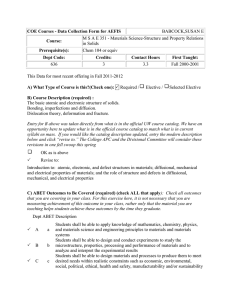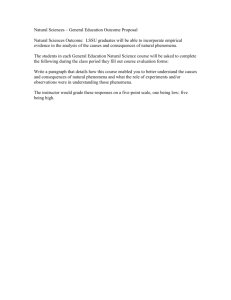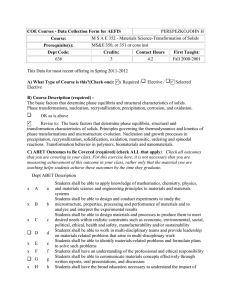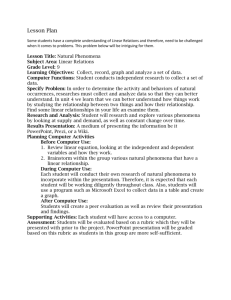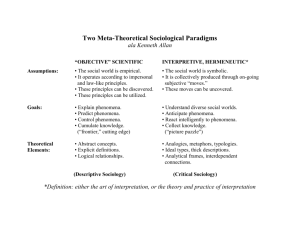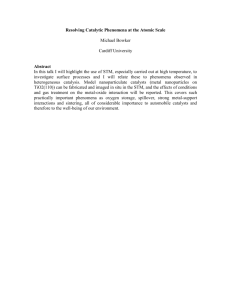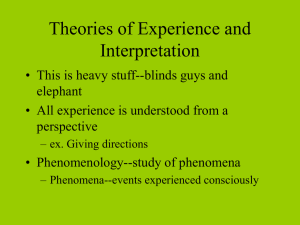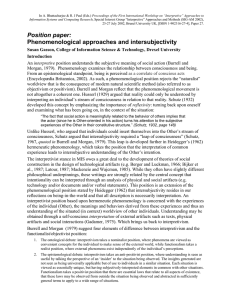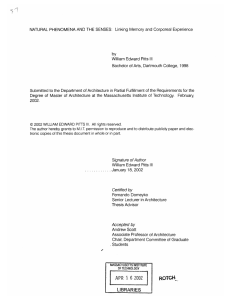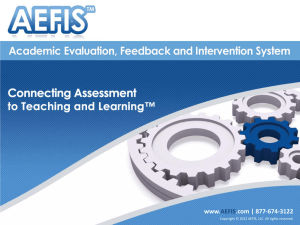MSE 331
advertisement
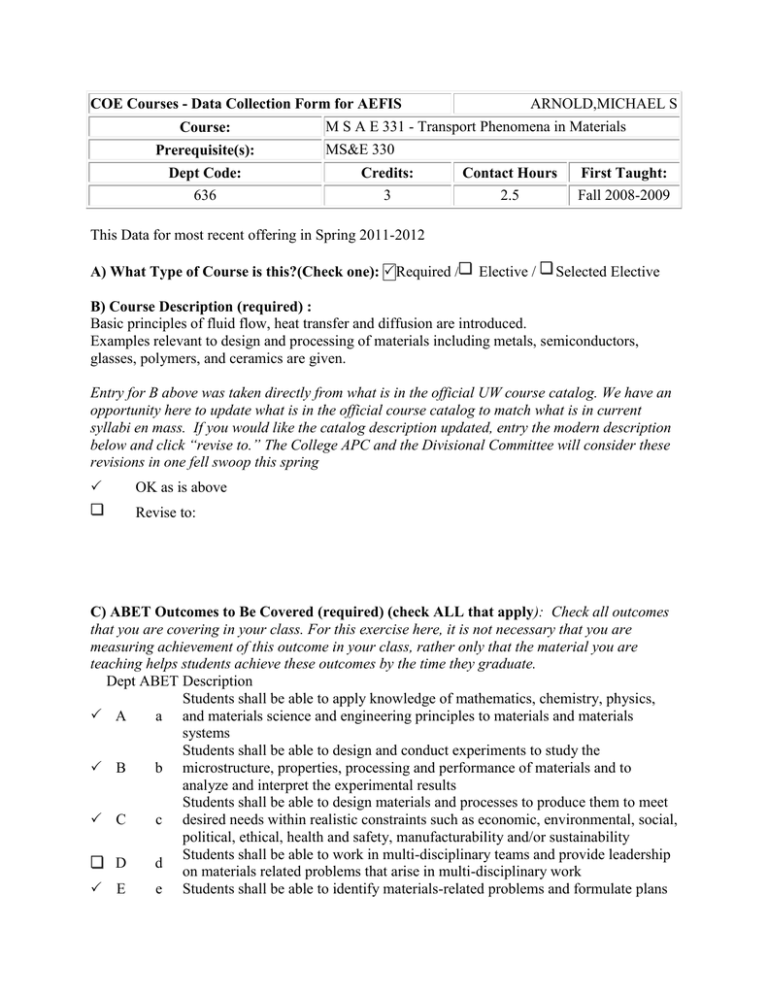
COE Courses - Data Collection Form for AEFIS Course: Prerequisite(s): Dept Code: 636 ARNOLD,MICHAEL S M S A E 331 - Transport Phenomena in Materials MS&E 330 Credits: 3 Contact Hours 2.5 First Taught: Fall 2008-2009 This Data for most recent offering in Spring 2011-2012 A) What Type of Course is this?(Check one): Required / Elective / Selected Elective B) Course Description (required) : Basic principles of fluid flow, heat transfer and diffusion are introduced. Examples relevant to design and processing of materials including metals, semiconductors, glasses, polymers, and ceramics are given. Entry for B above was taken directly from what is in the official UW course catalog. We have an opportunity here to update what is in the official course catalog to match what is in current syllabi en mass. If you would like the catalog description updated, entry the modern description below and click “revise to.” The College APC and the Divisional Committee will consider these revisions in one fell swoop this spring OK as is above Revise to: C) ABET Outcomes to Be Covered (required) (check ALL that apply): Check all outcomes that you are covering in your class. For this exercise here, it is not necessary that you are measuring achievement of this outcome in your class, rather only that the material you are teaching helps students achieve these outcomes by the time they graduate. Dept ABET Description Students shall be able to apply knowledge of mathematics, chemistry, physics, A a and materials science and engineering principles to materials and materials systems Students shall be able to design and conduct experiments to study the B b microstructure, properties, processing and performance of materials and to analyze and interpret the experimental results Students shall be able to design materials and processes to produce them to meet C c desired needs within realistic constraints such as economic, environmental, social, political, ethical, health and safety, manufacturability and/or sustainability Students shall be able to work in multi-disciplinary teams and provide leadership D d on materials related problems that arise in multi-disciplinary work E e Students shall be able to identify materials-related problems and formulate plans F f G g H h I i J j K k to solve such problems Students shall have an understanding of the professional and ethical responsibility Students shall be able to communicate materials concepts effectively through written reports, oral presentations, and discussion Students shall have the broad education necessary to understand the impact of materials science and engineering solutions in a global, economic, environmental, and societal context Students shall have the materials science and engineering foundation needed to succeed in materials science and engineering graduate programs, to pursue other forms of continuing education in materials science and engineering, and to engage in life-long learning of materials science and engineering Students shall have an awareness of contemporary and cultural issues Students shall be able to use the techniques, skills, and modern materials science and engineering tools necessary to practice materials science and engineering as a professional D) Default Specific Course Outcomes (required): These are things in addition to A-K above that would appear in your syllabus on opening day as the things you want the students to learn, for example, for MSE 360: hands-on skills in quantitative metallography. You might list three or four and they might look like technical in nature and should be consistent with the course description. Students shall have an understanding of practical considerations for how mass, energy, and fluid transport phenomena affect the processing, synthesis, and growth of materials Students shall be able to analyzing transport problems using basic principals Students shall be able to solving transport problems using numerical/computational approaches E) Textbook (required): Give title, author last name(s), edition Transport Phenomena in Materials Processing, Kou (first name Sindo), 1st edition F) Supplemental Material (optional): for example lecture slides available on eCOW2 course home page; lectures available on UW media site for MSE 351; or Supplemental readings, course grades, homework assignments, homework solutions, and lowstakes quizzes will be available online via eCOW2 at ecow2.engr.wisc.edu G) Brief Topics to be covered in Addition to B) and any Additional Information (required): for example, field trip to local manufacturing plant is required. Charge transport phenomena will be briefly covered. In addition to solving transport problems “by hand” using basic principles, students will learn to use the COMSOL multiphysics software package to numerically solve transport problems.
